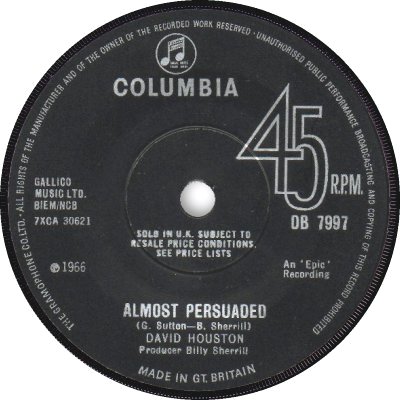
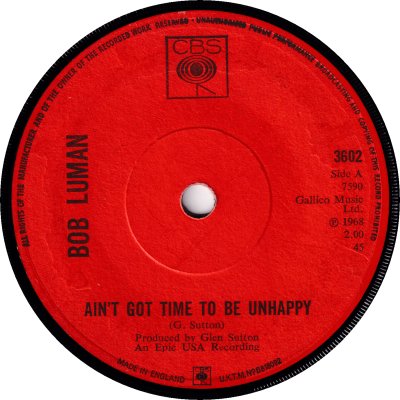
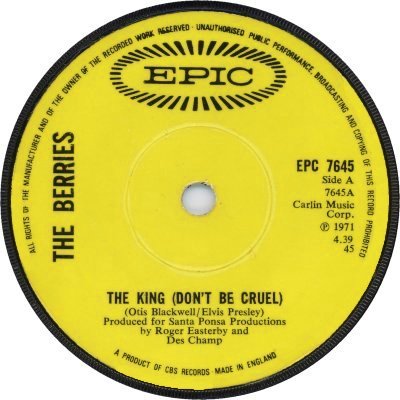
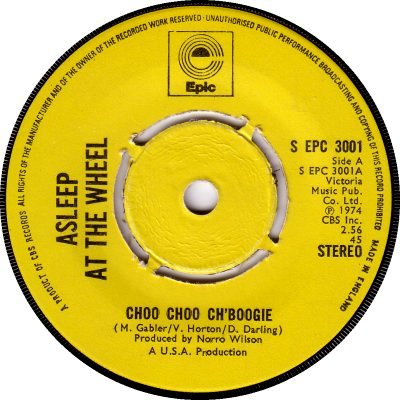
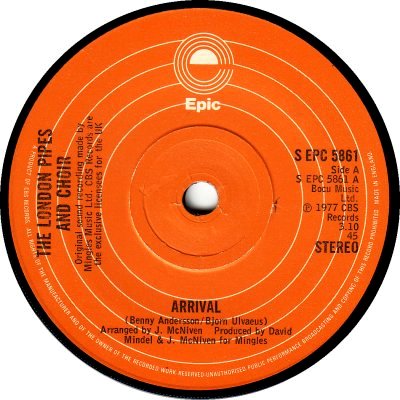
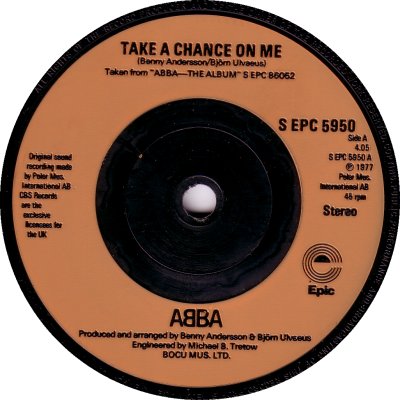
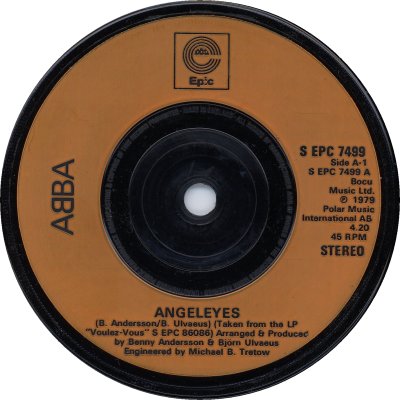
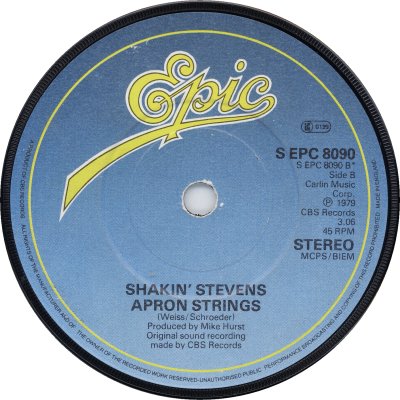
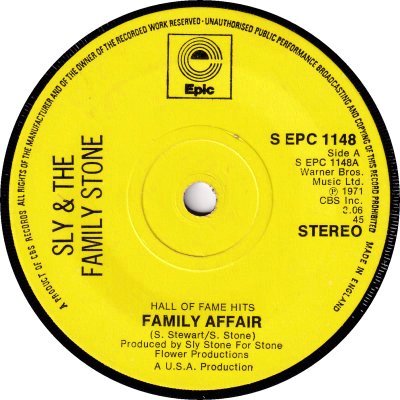
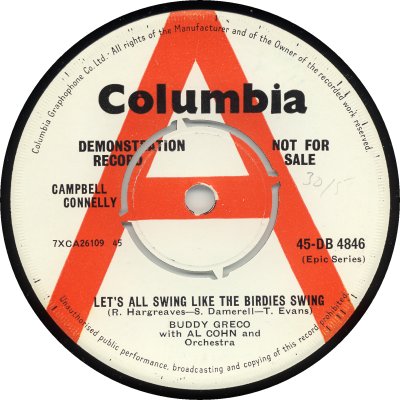
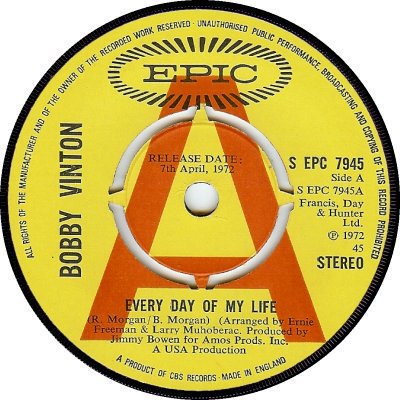
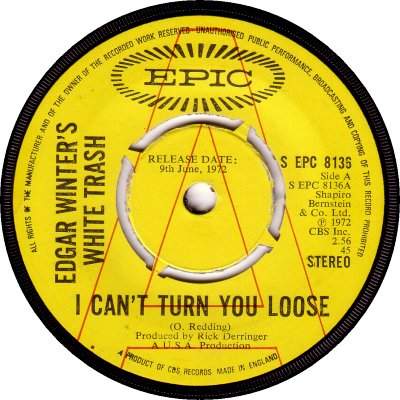
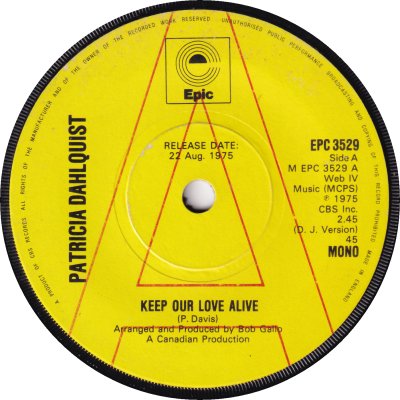
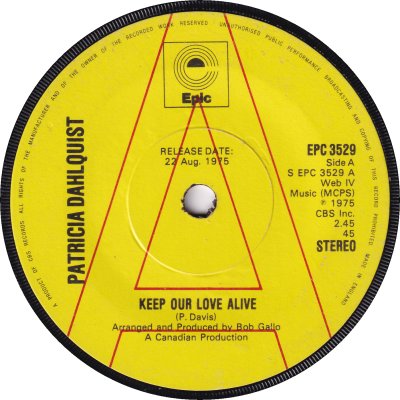
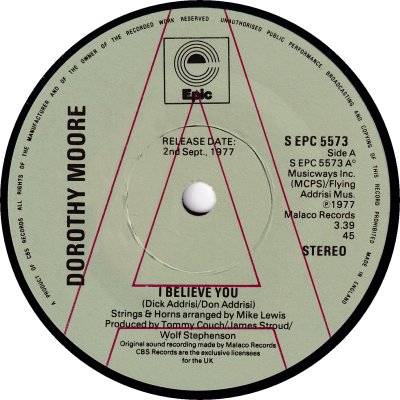
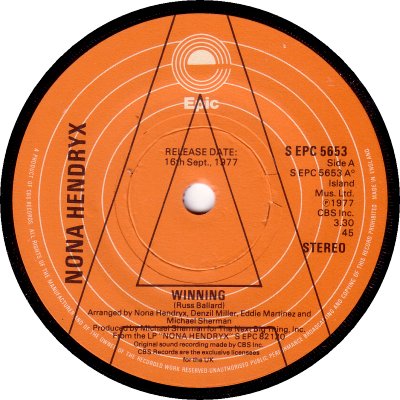
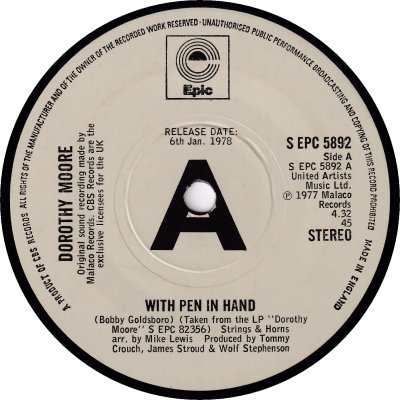

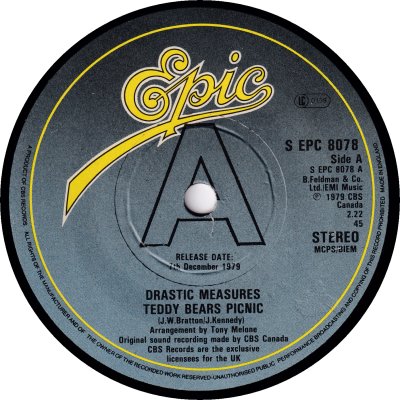
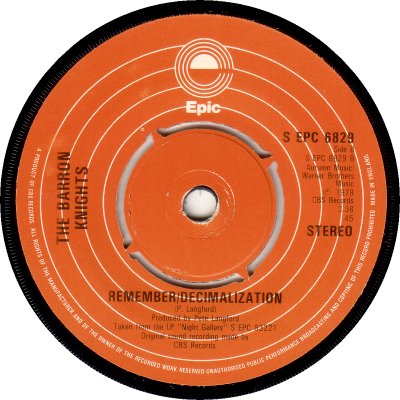
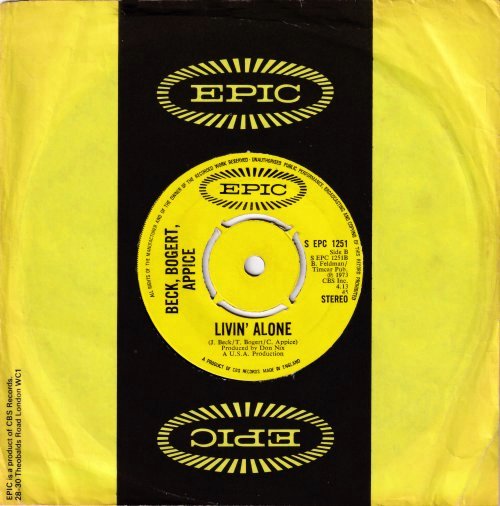
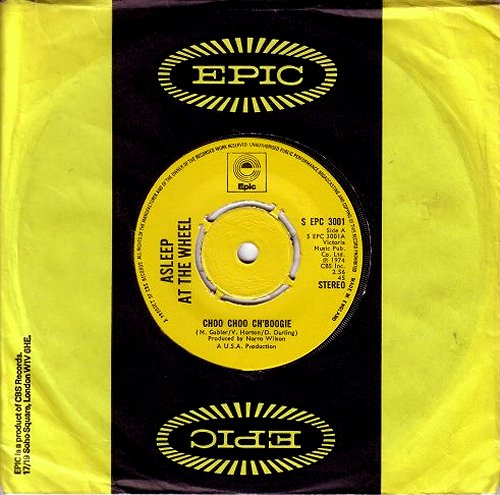
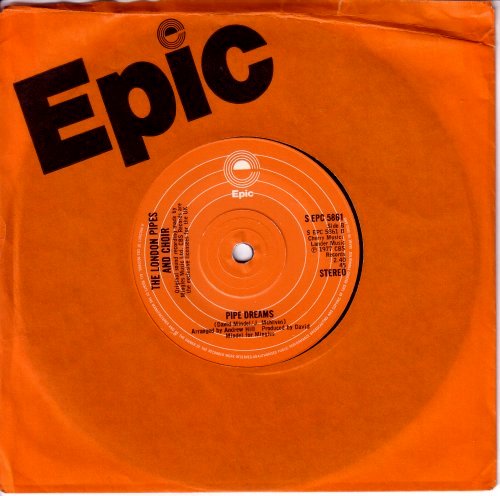
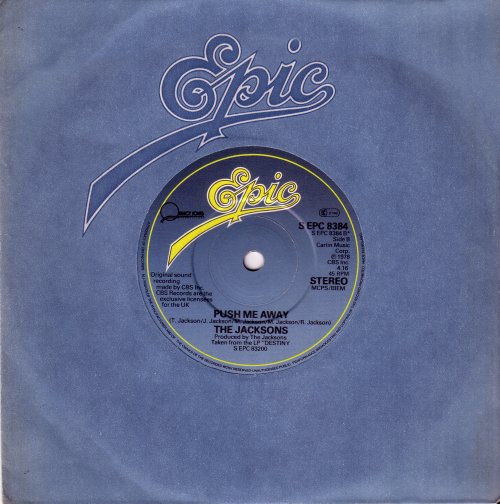
American, an offshoot of Columbia Records. As far as the USA is concerned, the Epic label was launched in 1953. It received its first mention in 'Billboard' in the issue of the 20th of June, which said that, like another Columbia subsidiary Okeh, it was to be distributed independently from its parent company. At that time it was definitely going to feature Classical music, but there was the possibility that Okeh's Pop artists would be transferred across, leaving Okeh handling just R&B and Jazz. The following month 'BB' of the 4th of July gave the launch month as August; it confirmed the independent distribution and was able to state that Okeh's Pop artists would indeed be moving to the new label. Epic would be featuring Jazz, too, including material from big names such as Duke Ellington, Benny Goodman and Bunny Berrigan, while the Classical material was to be supplied by the European company Philips. Okeh was to concentrate on R&B and Country. The launch was slightly delayed, but 'BB' of the 19th of September was able to say that it would take place 'Next week'. The details about Okeh and the independent distribution were reiterated, and it was added that Columbia hoped to build Epic into a substantial subsidiary label. Finally 'BB' of the 3rd of October carried an advert for the new label, listing its first releases and claiming that Epic Records came in 'Radial Sound', which 'Surrounds you with the most electrifying reproduction in recording experience'. Little more was heard of 'radial sound', but it does at least explain the lines that radiated out from the label's name in its first logo (3).
Epic appears to have made a fairly slow start, but the pace began to pick up in the '60s. 'BB' of the 14th of October 1964 noted that the label had achieved all-time high sales over the past year and had become 'one of the top indies' - despite its intimate relationship with Columbia it retained a decent amount of autonomy. A year later 'BB' of the 6th of November 1965 observed that Columbia had activated Epic intending it to 'swing' on its own with an independent distribution set-up of its own but that in the past few years it had grown into a label of stature 'with its own entity'. As well as records by home-grown artists its catalogue included at various times licensed material from The Yardbirds, the Dave Clark Five, Rolf Harris, Cliff Richard, The Shadows and The Hollies. Tracks by Epic artists made their way in the other direction but generally failed to make much of an impression. Country artists were eventually switched from Okeh to Epic, with positive results in the USA - 'BB' of the 13th of January 1968 said that Epic had emerged as one of the leaders in that field.
An important move took place in the summer of 1970: Ron Alexenburg, who had been Epic's assistant director of promotions for the past two-and-a-half years or so, was promoted to vice president in charge of sales and distribution for Epic and for Columbia's 'custom' labels. Under his leadership Epic started to make waves. 'BB' of the 12th of August 1972 commented that the label's sales had grown by 106% over the past five years and that it currently had eleven singles in the Country Charts. A week later, 'BB' of the 19th of August announced that Epic was to be given a new logo, consisting of a stylized 'e' over its name (4).
Epic continued to grow. 'BB' of the 27th of April 1974 claimed that since Alexenburg had been named head of Epic's operations he had turned the label around, achieving a 62% growth in sales and making it 'One of the hottest Soul and Country labels on the market'. In passing, the article noted that Epic and Columbia's custom labels Monument and Philadelphia International were able to operate as independents, as did distributed labels Mums, Kirshner, Invictus and Blue Sky. Country artist Charlie Rich enjoyed an 'extreme surge in popularity' that year, a fact which 'BB' of the 7th of December attributed to the production, promotion and exposure that Epic had provided. Perhaps unsurprisingly, the same issue of 'BB' revealed that Alexenburg had been promoted again at the end of that year, to vice president and general manager of Epic and the custom labels. He was to remain with the company until early 1979, when he was 'poached' by MCA to head their Infinity label (q.v.).
The roster of artists at Epic included names which were or were to become household ones, particularly in its home country but also abroad. The Jacksons came on board in 1976, a move which was to bring dividends in particular with Michael Jacksons's solo work of the 1980s. Agreeing to distribute the new Cleveland International label ('BB'. 12th March 1978) brought Meat Loaf into the fold, which would pay off when the 'Bat Out Of Hell' album caught the attention of record-buyers worldwide. A twenty-five year retrospective look at the company in 'BB' of the 17th of February 1979 called it one of the 'Most creatively diverse in the music industry', and justifiably so. The feature commented that Epic's artist roster was being slimmed down at that time, with only those who had 'Demonstrated the ability to produce quality music over a period of time' and had 'clearly viable market potential' being retained, but while the company departed our decade somewhat leaner it was still undeniably fit. It also departed with another new logo, one featuring its name in swirly letters (8); the logo was unveiled at the Columbia conference of the summer of 1978 ('BB', 5th August). Thankfully Epic's history throughout the '80s, the '90s and beyond is outside the scope of this site, but the label is still flourishing today as part of the Sony organization.
The Epic label came on the scene much later in Britain than it did in the States. American Columbia signed a licensing deal with Philips at the start of 1953, which led to its product and that of Epic appearing on the Philips label. In the spring of 1957 Philips launched a new label, Fontana, primarily for Epic recordings but also for 'overspill' American Columbia material ('BB', 9th March). Not many Epic records made an impression here, the pick of the bunch being Tony Orlando's 'Bless You' b/w 'I Am The Guy' (Fontana, H-225; 6/60) which climbed to the No.5 spot. The next development came in 1962, when Philips granted American Columbia's wish for its own label. With EMI having the rights to the Columbia name in Britain, American Columbia's label was given the name CBS. As Epic was operating under its own banner and wasn't just lumped in with American Columbia, Pye and EMI both negotiated for the right to distribute its records here ('BB', 27th January). EMI was successful, and secured the rights to both Epic and Okeh ('BB', 21st April). Thus when the CBS label made its debut here, in May of that year, Epic and Okeh material began to appear not on CBS but on an EMI label - ironically, (UK) Columbia. The Columbia labels carried a credit to Epic as the originating company (1, 10). The deal didn't bear an awful lot of fruit for EMI, a couple of singles by Bobby Vinton in 1962-63 providing the only Chart entries, and when it ran out, at the end of March 1968, Epic was reunited with its parent. According to 'BB' of the 11th of May, Okeh material was to be issued on the Direction label and Epic was to be launched as a label under its own name later in the year, until which time its records would come out on the CBS label. In the event, however, it was to be more than two years before the Epic label appeared. In the interim, its records continued to come out on CBS, again usually with a credit to Epic as the originator (2).
It was 'Record Retailer' of the 16th of January 1971 which eventually broke the news that Epic was at last on the way as a label in the UK. According to the article the first batch of releases was to consist of three albums and was to come out at the end of the month. The first singles also appeared in January, though the article didn't mention them. From that point Epic was closely associated with CBS, and its records were distributed by that company. It no longer enjoyed the degree of autonomy that its counterpart did in America: CBS staff decided whether an artist was to be assigned to CBS or Epic ('BB', 17th February 1979). Its first hit came some nine months after the launch, when Redbone took 'The Witch Queen Of New Orleans' b/w 'Chant: 13th Hour' (EPC-7351 ; 8/71) to the No.2 position, but while it went on to chalk up a reasonable number of Chart hits over the next two-and-a-half years placings tended to be fairly modest, with only Argent's 'Hold Your Head Up' b/w 'Keep On Rollin'' (EPC-7786; 2/72) and Charlie Rich's 'The Most Beautiful Girl' b/w 'I Feel Like Going Home' (EPC-1897; 11/73) getting into the Top 10, the former at No.5, the latter at No.2. In addition the label lacked a consistent hit-maker: artists such as Rich who were big in the States scored here, but not with any frequency, their hits being mixed in with misses.
It was not until the spring of 1974 that Epic happened upon a group that was to provide a string of singles that were not only consistent hits but were also big-selling ones. That group was Abba, whose Eurovision success 'Waterloo' b/w 'Watch Out' (EPC-2240; 4/74) supplied the label with its first No.1 and acted as a springboard for an astonishing run of Top 5 singles into the early 1980s, a run which contained eight more No.1s, four No.3s and three No.2s. Regrettably for Epic the group's records were licensed to Atlantic in the USA, but their sales figures elsewhere were enviable. The Jacksons also saw Epic in the Charts with some frequency, notching up eight hits between April 1977 and March 1979. The hits weren't on the scale of Abba's but they did include another No.1, 'Show You The Way To Go' b/w 'Blues Away' (EPC-5266; 5/77). There were also hits in the late '70s for The Nolans, who went on blossom as a Chart act in the early '80s, and for Michael Jackson as a solo artist, who went on to be huge in the '80s. Other hits were provided by a variety of artists across the musical spectrum, from the comedy of The Barron Knights via the Country of Tammy Wynette and the Funk of The Isley Brothers to the Rock of Boston, Ram Jam and Meat Loaf. One Epic artist whose late-'70s singles failed to chart but who went on to sell bucketloads of records in the '80s was Shakin' Stevens. All in all, as far as the UK was concerned Epic was entitled to enter the '80s with a spring in its step.
As mentioned above, the Epic label saw several design changes during the '70s. For the first two years a yellow label with lines radiating from the name was used (3). It was followed in February 1973 by the 'e in a box' logo (4). Then in September 1976 the label colour changed to orange with white circles, though the 'e' logo was retained (5). In mid 1977 CBS began to experiment with injection moulded labels, and popular Epic singles can occasionally be found in that form. Initially the logo on these labels was at 4 o'clock (6) but it soon migrated back to the top (7). The blue label with the company name in a swirly font (8) replaced the orange one in October 1979. Singles in the CBS Group 'Hall Of Fame Hits' series had the appropriate text added (9) and came in dedicated 'Hall Of Fame Hits' picture sleeves. The various kinds of label came with their matching company sleeves, though for some reason the 'radiant' logo on the yellow-and-black sleeve was never replaced by an 'e' one. Singles in the 'Disc-o-Doubles' and 'Golden Decade 1967-76' series came in special sleeves but had no distinguishing text on their labels.
Turning to promo copies, a number of designs were used. Promos for yellow label singles usually consisted of the issue label with the release date and a large hollow red 'A' added to it (12, 13), but for the period February to April 1972 the 'A' shrank and became solid (11) - Thanks to Robert Bowes for that scan. For orange labels the hollow 'A' turned black (16). Interspersed with these were a couple of other designs, one in various shades of grey and grey-blue (15), the other with a small solid central black 'A' (17). There doesn't seem to be any particular reason which a single was given one of these different labels rather than the standard one. Promos of the blue labels were given a central black 'A', either solid (18) or hollow (19). In 1975 Epic put out a good number of promo-only pressings with a mono version on one side and a stereo one on the other (13, 14), which is commonplace in America but rare here; they're listed towards the end of the discography below. There were also quite a few promo-only pressings with long and short versions on either side.
Manufacture of Epic records was naturally done by CBS, but at peak periods some contract pressings were done by other companies. EMI did some; their products can be recognized by the relatively narrow 'dinking' perforations (20; compare them with 4, 11 and 12) and the EMI-style run-off legend - see the page on run-off markings. Epic's singles shared a numerical series with the other CBS Group labels; the numbers had an 'EPC' prefix, usually with an 'S' after it (from 1971-72) or before it (from 1972 into the '80s) denoting stereo singles. I have ignored the 'S'es in the discography - which only covers the '70s - as they play merry hell with the sorting process. As can be seen, some singles with Epic catalogue numbers came out on the associated Full Moon or Epic / Ode labels.





Copyright 2006 Robert Lyons.

